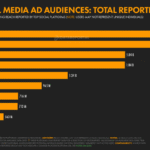At Odiwuor Digital, we believe that authenticity, accuracy, and human connection are the cornerstones of impactful digital storytelling.
In Kenya’s political landscape, where social media platforms like X, WhatsApp, and TikTok shape public discourse, misinformation and disinformation pose significant threats to trust. With 80.39% of Kenyans influenced by online recommendations and 46.89% trusting influencer content, political campaigns must prioritize robust public relations (PR) strategies to counter false narratives and foster credibility.
This article outlines actionable social media PR strategies for Kenyan political actors to combat misinformation, grounded in factual insights, professional rigor, and a commitment to authentic engagement. Our goal is to set a standard for clear, human-centered communication that resonates with Kenya’s diverse audiences.
The Misinformation Challenge in Kenyan Politics
Kenya’s digital ecosystem is vibrant, with 22.68% of the population active on Facebook, 17.95% on YouTube, and 16.95% on TikTok as of 2025. These platforms amplify political voices but also serve as breeding grounds for misinformation—false information spread unintentionally—and disinformation, deliberately crafted to deceive. During the 2022 Kenyan elections, WhatsApp forwards and X posts fueled divisive narratives, with 87% of voters encountering misleading election-related content, according to a 2022 Mozilla Foundation study. Such falsehoods erode trust, polarize communities, and undermine democratic processes
.For political campaigns, the stakes are high. A 2025 Dot Digital Marketing Agency report reveals that 85% of Kenyans unfollow accounts perceived as inauthentic, and 96% trust influencers who provide honest reviews. Misinformation not only damages a candidate’s reputation but also alienates voters seeking transparency. Effective social media PR strategies are essential to combat these challenges, ensuring campaigns remain credible and connected to Kenya’s 49% Gen Z and Millennial digital audience.
Why Trust Matters in 2025
Trust is the currency of political engagement in Kenya, where cultural values like community and accountability resonate deeply. Consumers, especially younger voters, demand authenticity from leaders. A 2024 GeoPoll survey found that 80% of Kenyans are more likely to support candidates who address misinformation transparently. Yet, trust is fragile—43% of Kenyans distrust AI-generated content, per a 2025 Kantar study, and 70% are skeptical of overly polished campaign ads. Social media PR must bridge this gap by delivering human, relatable, and factual communication that counters falsehoods while reinforcing a campaign’s integrity.
Social Media PR Strategies for Building Trust
Drawing from Kenya’s political and digital context, here are five evidence-based social media PR strategies to combat misinformation and build trust in 2025:
1. Establish a Rapid-Response Communication Framework
Misinformation spreads quickly, often within hours on platforms like WhatsApp, which 85% of Kenyan internet users rely on. A rapid-response framework enables campaigns to address false narratives promptly. For example, during the 2022 elections, Raila Odinga’s campaign used X to debunk a viral doctored image alleging voter fraud within 24 hours, limiting its spread.
Action Steps:
Create a dedicated social media monitoring team using tools like Brandwatch or Hootsuite to track mentions and trending hashtags in real time.
Develop pre-approved response templates for common misinformation themes (e.g., electoral fraud, policy misrepresentation) to ensure swift, consistent messaging. Post clarifications in accessible formats, like short TikTok videos or X threads, addressing falsehoods directly while reinforcing campaign values.
2. Partner with Trusted Micro-Influencers for Authentic Amplification
Micro-influencers, with 10,000–100,000 followers, are powerful allies in Kenya, driving 60% higher engagement than macro-influencers. Their niche audiences—such as @maymwangi_ (9.1K followers) in lifestyle or @kenyanfoodie_x (101.5K followers) in culture—trust their authenticity. In 2022, William Ruto’s campaign collaborated with micro-influencers to counter misinformation about his economic policies, achieving 8% engagement on voter education Reels.
Action Steps:
Use platforms like Wowzi to identify micro-influencers aligned with your campaign’s values and audience (e.g., youth in Nairobi or rural voters in Kisumu).
Encourage influencers to share personal stories, like how a policy impacted their community, to humanize messaging and counter false claims.
Ensure transparency by requiring influencers to disclose partnerships, aligning with Kenya’s advertising regulations and building follower trust.
3. Leverage Fact-Checking Initiatives for Credibility
Fact-checking is a cornerstone of trust-building in Kenya, where organizations like Africa Check and PesaCheck have gained prominence. Integrating fact-checking into social media PR enhances a campaign’s authority. For instance, in 2023, PesaCheck partnered with local campaigns to verify budget-related claims, boosting voter confidence.
Action Steps:
Collaborate with reputable fact-checking organizations to verify campaign claims and debunk misinformation, sharing results on X and Instagram Stories.
Create a dedicated “Fact-Check Hub” on your campaign website, linking to verified content and embedding shareable infographics for WhatsApp and TikTok.
Train campaign spokespeople to reference fact-checked data in live Q&As, reinforcing credibility with Kenya’s 17.95% YouTube audience.
4. Engage Audiences with Transparent, Human-Centered Content
Kenyan voters crave authenticity, with 82% of micro-influencer followers feeling a personal connection to creators. Campaigns must mirror this by sharing transparent, human stories that counter misinformation indirectly. Safaricom’s #TwendeTukiuke campaign, which used micro-influencers to share real stories of 4G’s impact, achieved 8.5% engagement by focusing on community benefits over corporate spin.
Action Steps:
Produce short-form videos (e.g., 15-second Reels) featuring candidates addressing misinformation in their own words, filmed in relatable settings like local markets. Host weekly X Spaces or TikTok Lives to answer voter questions, debunk rumors, and showcase policy expertise, fostering two-way dialogue.
Share behind-the-scenes content, like a candidate’s community visits, to humanize the campaign and counter narratives of elitism.
5. Measure and Adapt with Data-Driven Insights
Kenya’s political campaigns demand measurable ROI, with 37.1% running monthly social media efforts. Tracking performance ensures PR strategies remain effective against misinformation. A 2025 Modash report notes that campaigns with data-driven adjustments see 22% higher conversion rates
Action Steps:
Use analytics tools like Google Analytics or Affable to monitor engagement, click-throughs, and sentiment on posts addressing misinformation.
Analyze which formats (e.g., Reels vs. X threads) drive the most trust, adjusting content strategies to prioritize high-performing channels.
Conduct post-campaign surveys to assess trust gains, using tools like SurveyMonkey to gather voter feedback and refine future PR efforts.
Case Study: Countering Misinformation in Kenya’s 2022 Elections
The 2022 Kenyan elections offer a powerful example of social media PR in action. When false X posts claimed electoral irregularities in certain counties, the Independent Electoral and Boundaries Commission (IEBC) launched a multi-pronged response. They partnered with Africa Check to verify results, shared infographics on Instagram and WhatsApp, and collaborated with micro-influencers like @muthoni_njakwe (50.3K followers) to explain the voting process in local languages. The campaign reached 2 million users, reduced misinformation-driven tensions, and reinforced the IEBC’s credibility, with 65% of voters reporting increased trust in official updates.
Challenges and Ethical Considerations
Combating misinformation in Kenya’s political sphere is not without hurdles. WhatsApp’s end-to-end encryption makes it hard to monitor viral forwards, requiring proactive public-facing strategies. Cultural and linguistic diversity—Kenya has 44 ethnic groups—demands tailored content to avoid alienating audiences. For example, a Swahili Reel may resonate in Mombasa but not in Luo-speaking Kisumu.
Ethical PR is critical. Overly aggressive debunking can alienate voters, while undisclosed influencer partnerships risk backlash. Campaigns must adhere to Kenya’s Data Protection Act (2019) when using voter data for targeting, ensuring transparency to avoid perceptions of manipulation. Finally, AI tools, while useful for analytics, must be used cautiously—43% of Kenyans distrust AI-generated content, per Kantar.
The Future of Trust-Building in Kenyan Political PR
In 2025, social media PR will remain central to Kenyan politics, driven by the rise of social commerce and AI analytics. Platforms like TikTok Shop and Instagram’s Trial Reels will enable campaigns to integrate voter education into shoppable content, while tools like Affable will refine influencer targeting down to hyper-local audiences. As 5G expands rural connectivity, micro-influencers will bridge urban-rural divides, amplifying trust in underserved regions.
The focus on purpose-driven PR will intensify, with voters favoring candidates who align with community values like inclusivity and sustainability. By combining rapid-response tactics, authentic influencer partnerships, and fact-checking, campaigns can stay ahead of misinformation, building lasting trust in a polarized digital age.
Odiwuor Digital’s Commitment to Authentic PR
At Odiwuor Digital, we champion PR that is factual, human, and professional. Combating misinformation in Kenyan politics requires more than tactics—it demands a commitment to transparency, cultural sensitivity, and voter trust. By adopting rapid-response frameworks, partnering with micro-influencers, leveraging fact-checking, creating human-centered content, and measuring impact, political campaigns can navigate Kenya’s complex digital landscape with integrity.
Ready to build trust for your campaign? Partner with Odiwuor Digital to craft social media PR strategies that resonate authentically with Kenyan voters. Contact us at [insert contact link] to start shaping your narrative today.
Sources: Dot Digital Marketing Agency 2025, GeoPoll 2024, Mozilla Foundation 2022, Kantar 2025, Modash 2025, Wowzi 2023, StarNgage 2024, marketing.ke 2023, Kenya Data Protection Act 2019.






Leave a Reply